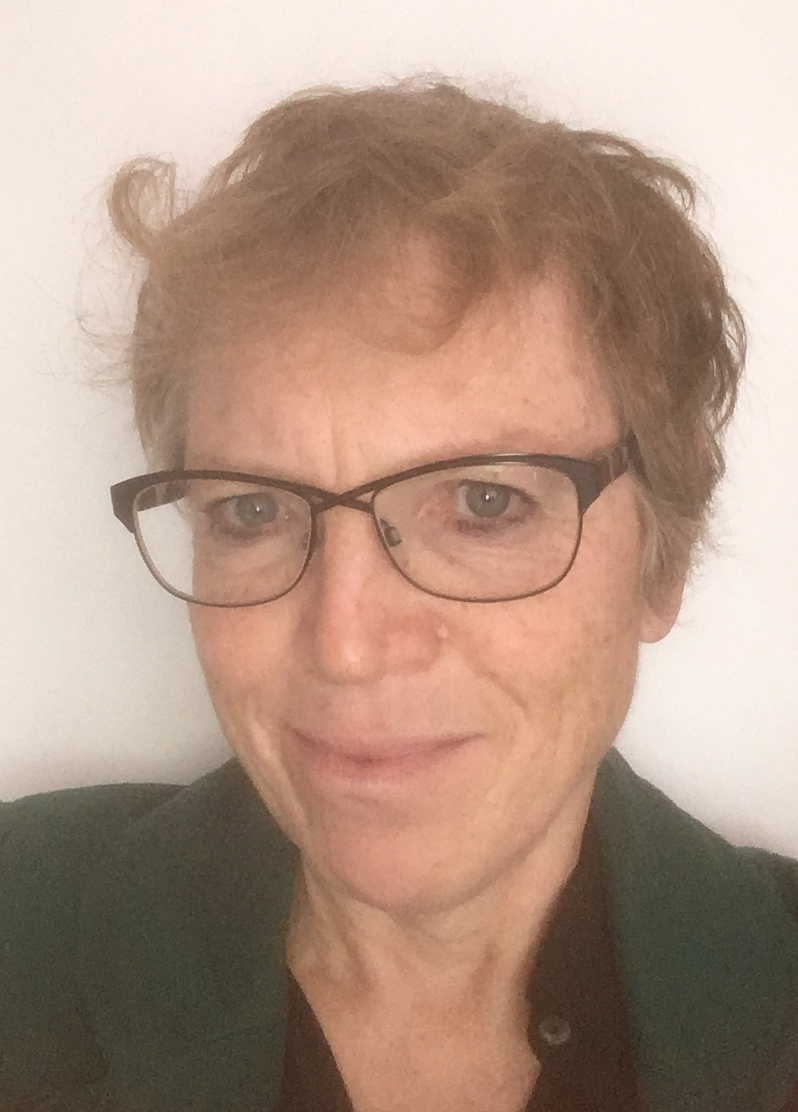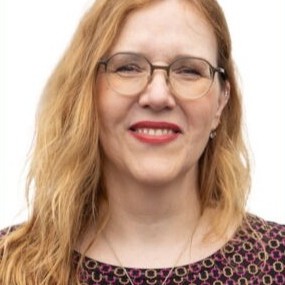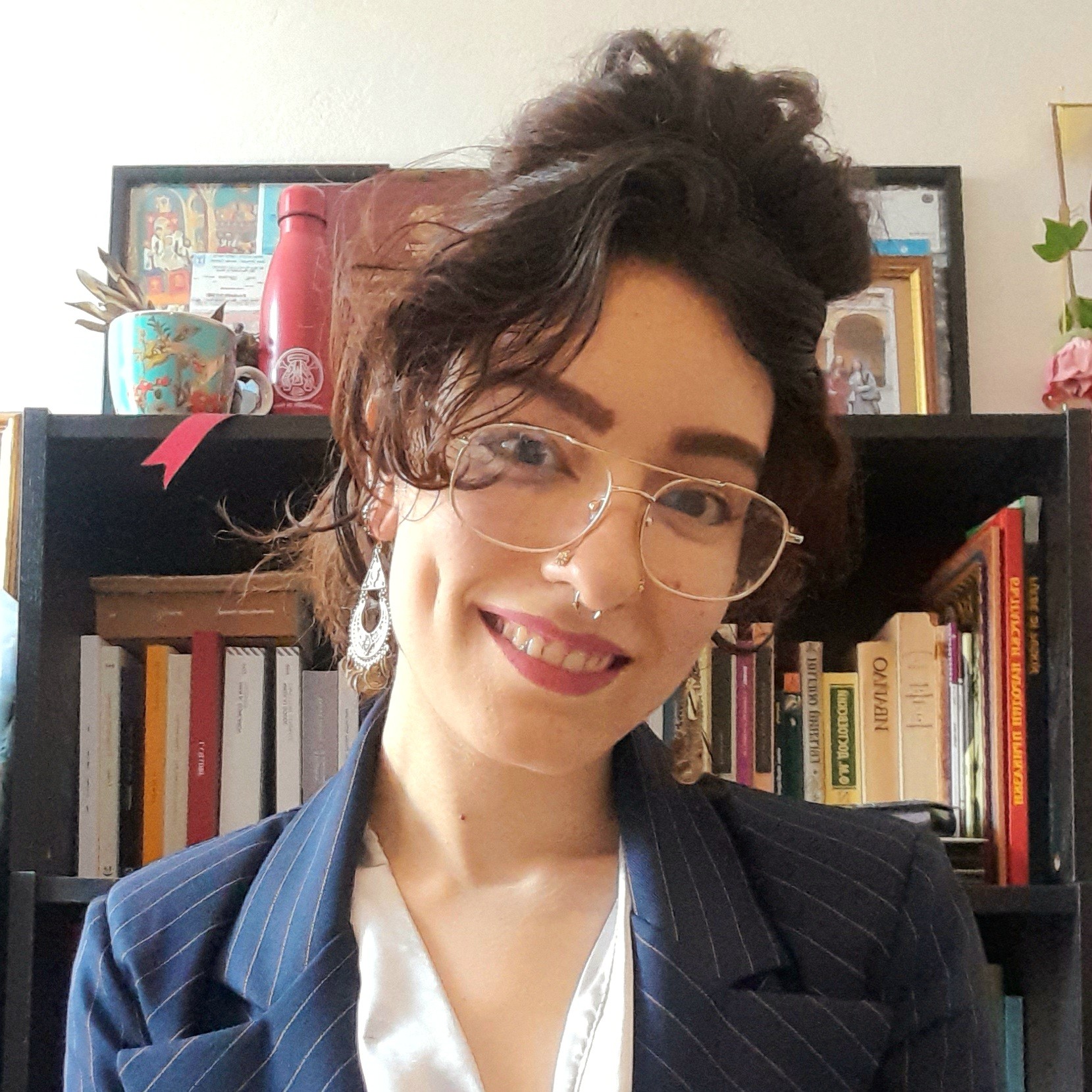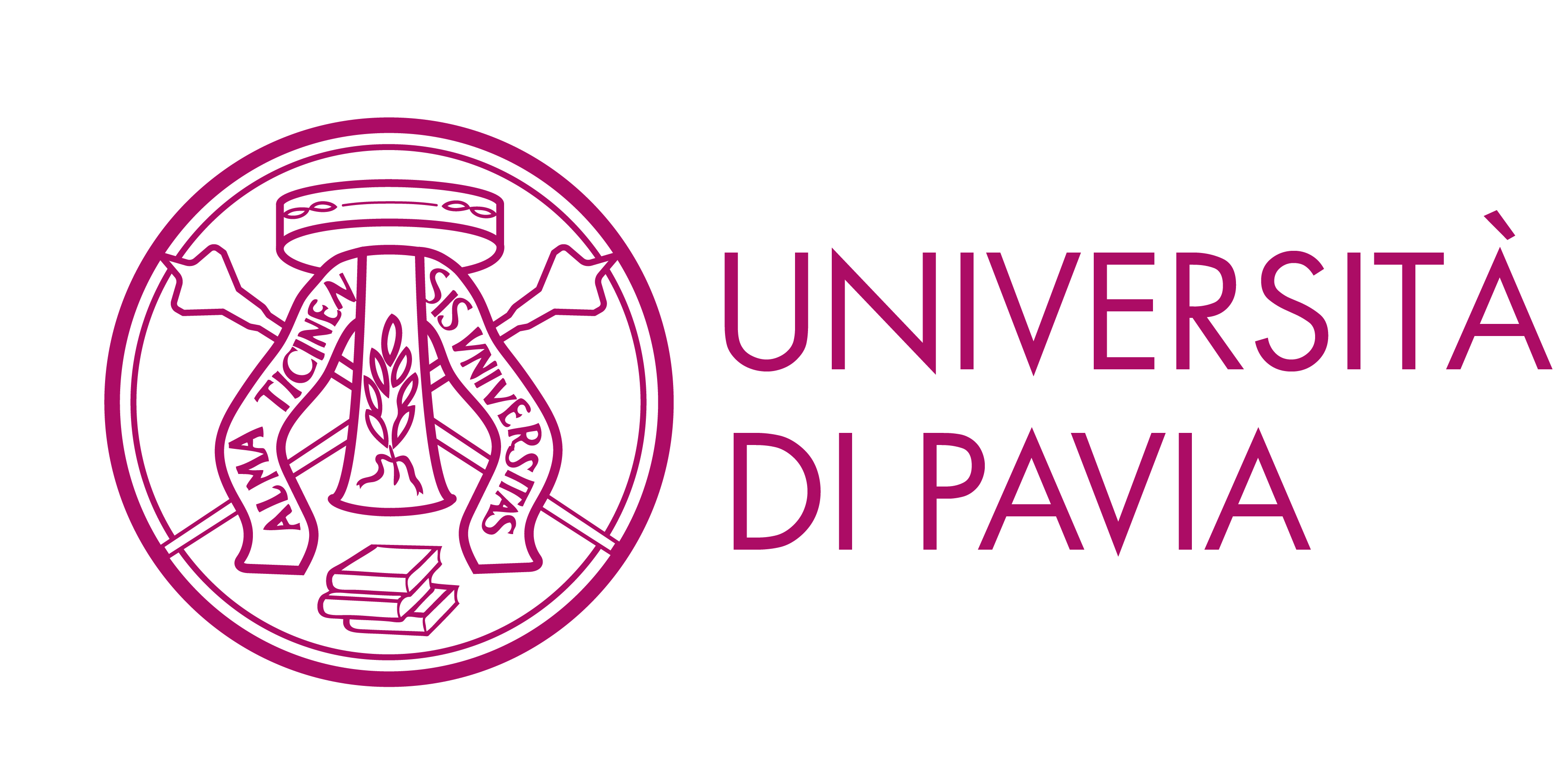Katy Brickley (King’s College London) is an Easy Read translator and researcher from the UK. She has worked in accessible communication since 2005, producing information in Braille, large print, audio and Easy Read. In 2020, Katy set up Go Easy Read to produce user-focused translations. She works closely with people with learning disabilities to create clear and user-focused translations. Katy also works with other translators and organisations to create and share industry standards based on research, user feedback, and real-life experiences.

Deborah Chinn (King’s College London) has worked for many years as a UK National Health Service clinical psychologist with people with intellectual disabilities in community teams. This background has provided the questions and concerns that have underpinned the research that she has conducted based at King’s College London. This has examined how people with intellectual disabilities access health and social care services, and how these services are able to meet requirements to adapt to individual’s communication support needs. She is primarily a qualitative researcher with particular interest in discourse analysis and conversation analysis and has a growing interest in using arts-based and participatory research methods with people with intellectual disabilities.
Martin Cutts is author of ‘The Oxford Guide to Plain English’ (edition 5, OUP 2020). On FREE download from his website www.clearest.co.uk are several books showing demonstration projects about plain legal language (eg, ‘Lucid Law’), as well as ‘Writing Plain English’, a FREE training course on plain-language basics. Martin is director of Plain Language Commission (a UK-based firm providing editorial and training services). He has been at the heart of the plain-language movement since the mid-1970s. He conceived and co-founded the Plain English Campaign in 1979. After a decade, he left it to create Plain Language Commission. More than 15,000 documents and websites display Plain Language Commission’s Clear English Standard logo, showing they have met the firm’s rigorous clarity criteria. In 2013, Martin won the Christine Mowat Achievement Award for Outstanding Contributions to Plain Language, and in 2023 he was inducted into the Plain Language Hall of Fame.
David Katan (Univ. Salento) is professor of English and Translation at the University of Salento (Italy), specializing in intercultural communication, translation, transcreation and tourism. His publications include for Routledge: Encyclopaedia of Translation (2nd & 3rd eds), Translation and Conflict and Translation and Globalisation; for Benjamins, the Handbook of Translation Studies (1st, 2nd & 5th eds), and for the Wiley-Blackwell Encyclopedia of Applied Linguistics (1st & 2nd ed). The volume Translating Cultures: An Introduction for Translators, Interpreters and Mediators is now in its 3rd edition (Routledge, 2021). He has been editor-in-chief of Cultus: The Journal for Intercultural Mediation and Communication since its inception in 1993. He has been keynote speaker for a variety of international conferences in Italy, Australia, Columbia, Iraq, the Netherlands and South Africa, and is currently Visiting Researcher at the University of South Africa. Recent research interests include translator status and training, creative subtitling, heritage translation, translation as narrativity, and how to integrate AI into translation training. At present he is managing part of a national project on the language (both verbal and visual) of tourism promotion in translation compared with the language used by native speakers. Professionally, he has also worked for over 25 years in intercultural business training with TCO International and Worldwork, which also involved long engagements with companies such as Benetton and Generali. He is now a licensee of the TCO Intercultural Competence diagnostic tool, “The International Profiler”. Today he also works as a translator, specializing in museum and tourism guides. Both the academic research and the professional experience have been focussed on improving communication in English. In all cases, accessibility and reader response have being key aspects.
Tatjana Knapp (Risa Institute) is the director of Zavod RISA, a Slovene non-profit organization focused on human rights, independent living, and accessibility. She has studied cultural anthropology, art therapy, and social work. While she worked as a researcher at the Faculty of Social Work at the University of Ljubljana, where she explored topics like accessibility of judicial processes for people with disabilities, and is still researching women’s autonomy in long-term care institutions, her main passion lies in practical work. She develops innovative services and tools to make information easier to understand and to support independent living for people with intellectual disabilities.In 2018, Knapp co-authored the Slovene Guidelines for Easy-to-Read (Easy Slovene), which provide 4 levels of text simplicity. She helped start ELIN, an international network of researchers and professionals who focus on Easy Language. This group meets regularly online to share ideas and collaborate on projects. From 2022 to 2024, she led SELSI, an Erasmus+ project that created one of Europe’s first guidelines for spoken Easy Language. Currently, she coordinates UNITY, an EU project aimed at improving democratic participation for people with intellectual and other disabilities.

Christiane Maaß (University of Hildesheim) is Professor for Media Linguistics at the University of Hildesheim (2011-) and director of the Research Centre for Easy Language (2014-). Since 2018, she has been head of the Master’s programme in Accessible Communication. She is the author and co-author of five monographical works and numerous smaller publications on Easy and Plain Language and Accessible Communication, co-editor of the Handbook of Accessible Communication (2019) and co-editor of the book series “Easy – Plain – Accessible‘ (Frank & Timme: Berlin), with 17 volumes on Accessible Communication published since 2020. From 2018 to 2021, she was involved in the ’EASIT” project on Easy Language in Audiovisual Media (funded by the EU). She heads the doctoral group Accessible Health Communication in the doctoral programme ‘Chronic Disease and Health Literacy’ (funded by the Robert Bosch Foundation). She is head of the Accessible Health Communication department of the German Network for Health Literacy. She is an appointed expert advisor to the German Federal Government on digital accessibility.
Anna Matamala (UAB) is a Full Professor at the Universitat Autònoma de Barcelona. She is the leader of Transmedia Catalonia, a research group that investigates media and digital accessibility. She is also the director of AccessCat, a network of research groups in Catalonia working on accessible communication. Anna has taken part in many projects on media accessibility and has published books and academic articles. Anna is one of the creators of the MAP platform, and since 2017 she directs the LAB-TTAV, a consultancy and training service. Anna is very active in standardisation work at both national and international committees such as UNE, CEN/CENELEC/ETSI or ITU. She has been the co-editor of an ISO standard on audio subtitling (ISO/IEC 23859:2023) and an ISO standard on easy-to-understand language (ISO/IEC 23859:2023).

Marianube Pavia (University of Pavia) is a student enrolled in the Master’s programme in Theoretical and Applied Linguistics at the University of Pavia, where she is currently a member of the research team at the Laboratory of Experimental Linguistics, under the supervision of Professor Stefano Rastelli, head of research. As part of the team, she has contributed to an eye-tracking study on the cognitive processing of deceptive language in phone advertisements. The group is now collaborating with the Centro di Ricerca e Tutela dei Consumatori e degli Utenti (CRTCU) of Trento on a new eye-tracking project aimed at improving the labelling of financial products, specifically the so-called “KIID” (Key Investor Information Document). The project has received significant media attention and will contribute to a report to be submitted to the European Commission.
